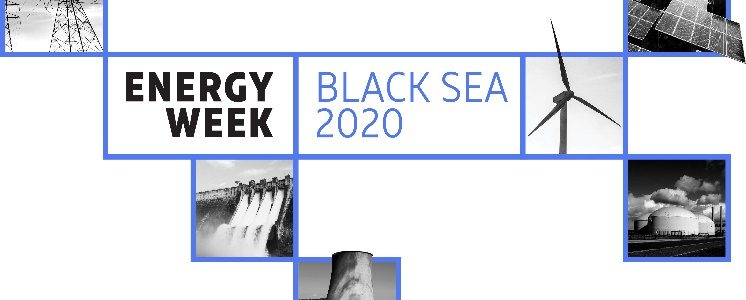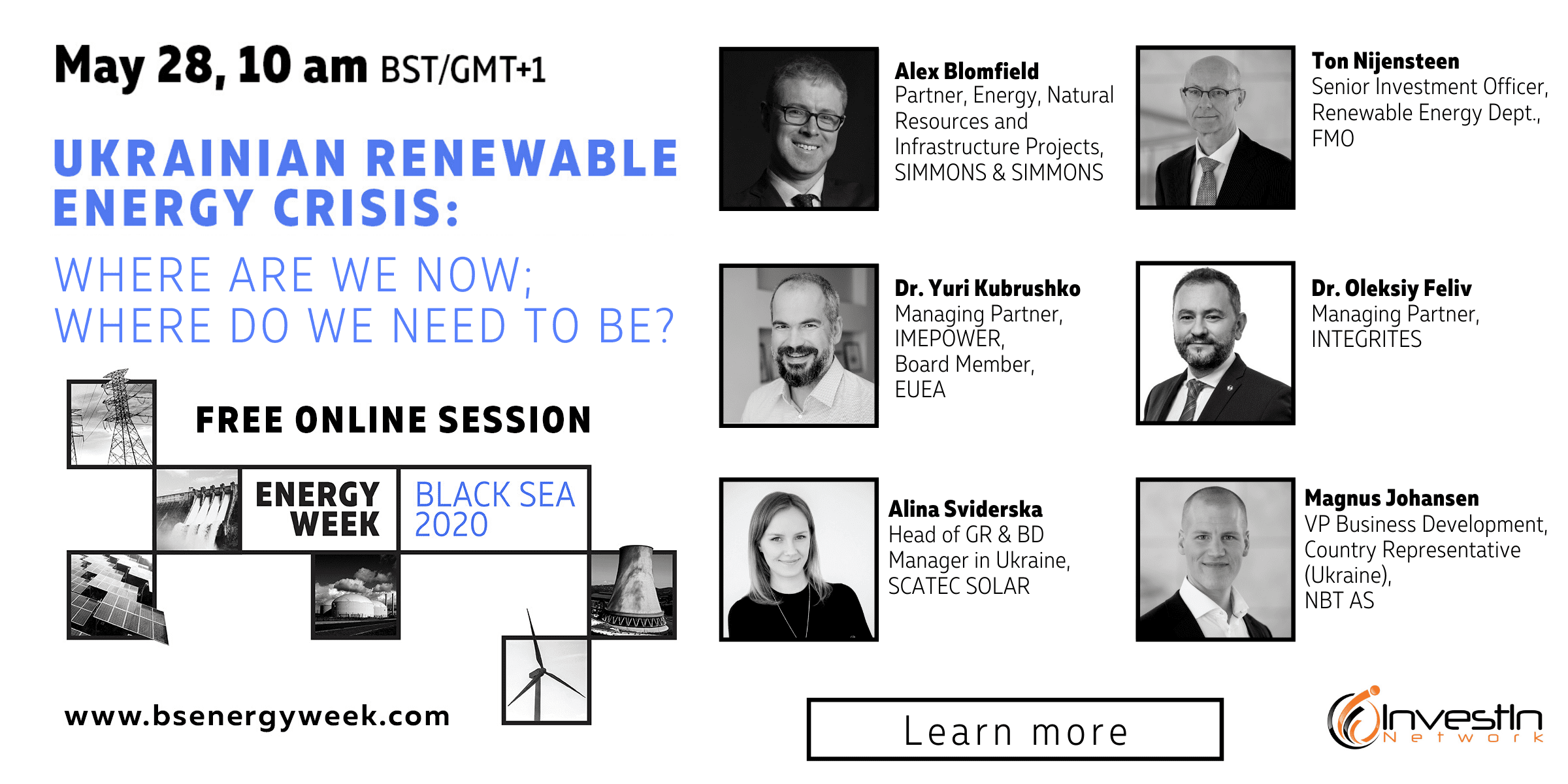
Free Online Session dedicated to the Ukrainian renewable energy crisis will be held on 28th May within the framework of Energy Week Black Sea 2020.
Due to the lucrative feed-in tariffs introduced in 2009, Ukraine has achieved remarkable progress in mobilising sizable private sector investments in the energy sector and becoming one of the fastest–growing renewables markets in Europe. In 2019, renewable energy deployment saw a record growth to 4 250 MW compared to the installed capacity of only 743 MW in 2018.

However, the recent developments, and, in particular, the initiative of the government to cut the feed-in tariff for wind and solar energy producers can change the outlook and turn the Ukrainian renewables success story into an illustration of why the state is not ready for foreign investment.
In December 2019, bill No. 2543 on improving the investment climate in the renewable energy sector was registered in Ukraine’s parliament. The bill proposes a voluntary restructuring of FIT with a simultaneous extension of the terms for their payment and a reduction in the terms of preliminary power purchase agreements (pre-PPA).
The following negotiations which have now lasted for six months failed to produce a compromise solution acceptable to both Ukrainian authorities and domestic and foreign investors. The key issues are still open, namely restructuring of power purchase agreements and feed-in tariffs, the release of capacity for wind energy investors for the benefit of future auctions, balancing responsibility and compensation for curtailments of wind and solar producers.
Online Session “Ukrainian Renewable Energy Crisis: Where Are We Now; Where Do We Need To Be?” is organised to address the situation and discuss the following questions:
What should be the state’s immediate steps in resolving the renewable energy crisis?
What are the most practical solutions and stabilisation measures acceptable for foreign investors?
How will Ukraine continue attracting investors in global competition? Are “green” auctions attractive enough?
What will be the pace of renewable energy project commissioning post-FIT?
What are the possibilities for addressing intermittency and energy security? How does the transition meet the need for continuous supply in the absence of storage? How should energy storage be supported?
Free Registration: https://www.bsenergyweek.com/online-session/
Open4business – media partner of Online Session «Ukrainian renewable energy crisis: Where are we now; where do we need to be?»